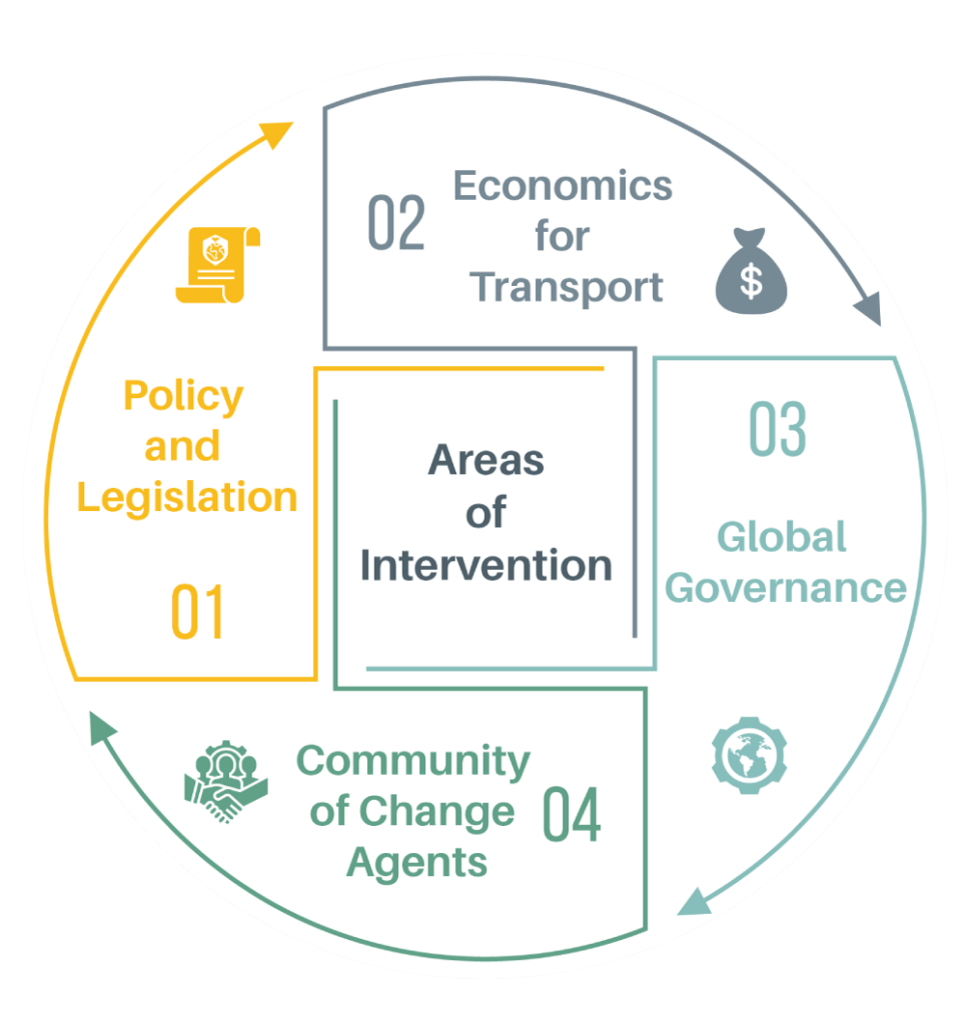The Four Critical, Interrelated Areas of Intervention
in the SLOCAT Strategic Development Plan 2023 - 2026
Transport services are provided and user choices are made within a specific context. Due to the high number of factors (e.g., geography, modes, investments, costs, actors, culture etc.) the context in which transport takes place is rather complex. This is why understanding and influencing transport and mobility is complicated.
